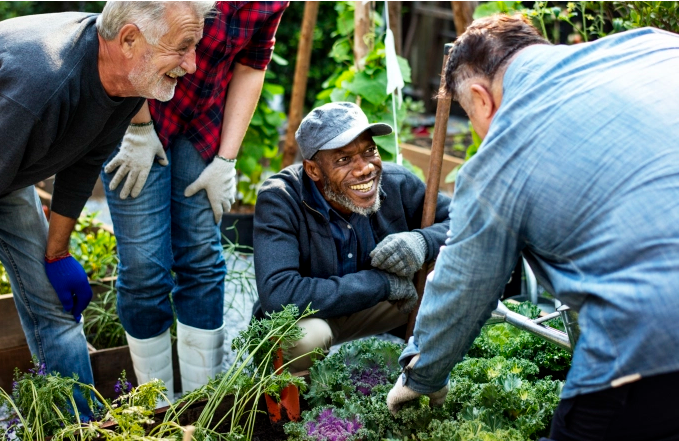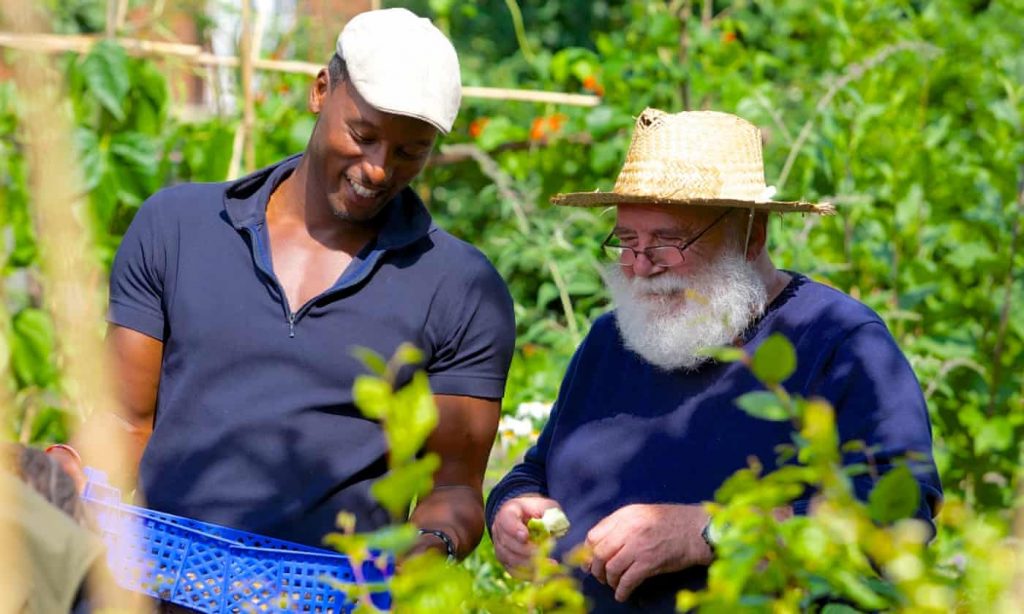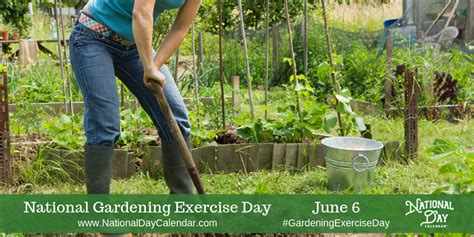Gardening Is Good For You!
- 2021-05-01
- By Martha Kirk
- Posted in The Garden Buzz
By Lucinda Greene, Horticulture Programs Coordinator and Assistant Horticulturist
Multiple research studies show that gardening provides stress relief and supports social, emotional, and spiritual well-being. Gardening is restorative. Being in nature helps reduce fatigue from directed attention activities like Zoom meetings! Digging in the dirt actually increases happiness. Research shows that contact with a particular strain of bacterium in the soil, Mycobacterium vaccae, increases serotonin levels and improves cognitive function. Access to greenery increases coping strategies. Students who have access to gardens report higher scholastic achievement, better nutrition, and increased environmental awareness. Gardening reduces body mass index. In short, there are multiple benefits to gardening for all ages.
Gardening is a life-long activity. It’s no secret that we lose bone density as we age, regardless of gender. Both men and women can be diagnosed with osteoporosis. Gardening encourages the low-impact, weight bearing activities that support strong bone health. Surgical implants and joint replacements keep us moving as we age, even in the midst of degenerative bone health. A recent study at the University of Arkansas of 3,310 women aged 50 and older found that women who gardened had higher bone density than women who were sedentary, or walked, jogged, swam, or did aerobics for exercise.
Gardening and outdoor activities such as digging, weeding, hoeing, or pushing a wheelbarrow or a lawn mower improves muscle tone and helps maintain strong bones. In addition to building strong bones, low-impact gardening activities burn calories. According to a study at Harvard, raking the lawn burns 142 calories an hour for a 155-lb person. General gardening or pushing a power mower uses 162 calories. In comparison, walking for an hour at 3.5mph (a 17 minute-mile) burns 133 calories. After spending a day in the yard or garden, you can feel comfortable enjoying those fruits and vegetables that you grow!
Being outdoors in the sunshine increases production of Vitamin D. Vitamin D increases calcium absorption in our bodies. Calcium is important in maintaining strong bones. According to research, Vitamin D deficiency is a global health problem. Data show that about one-third of the population 65 years and older fall once a year. This results in 1.5 million emergency room visits and 300,000 hospitalizations annually. Greens are a good source of calcium in our diet. Add a row or more of collards, kale, or spinach to your vegetable garden!
While building bones and burning calories in the garden, it’s important to remember to be careful in your movements. For older adults, start slowly at the beginning of the season, and don’t attempt too much. Stretching before tackling a full day in the garden is a good idea. Take advantage of adaptive garden products. Raised beds, elevated kneelers, and long-handled tools make bending easier. Use tarps to drag heavy loads like soil or compost, rather than trying to lift these items. In addition to maintaining bone health, gardening improves core strength. Keeping your core healthy all year long with strengthening and regular flexibility exercises means a great start to the gardening season!




